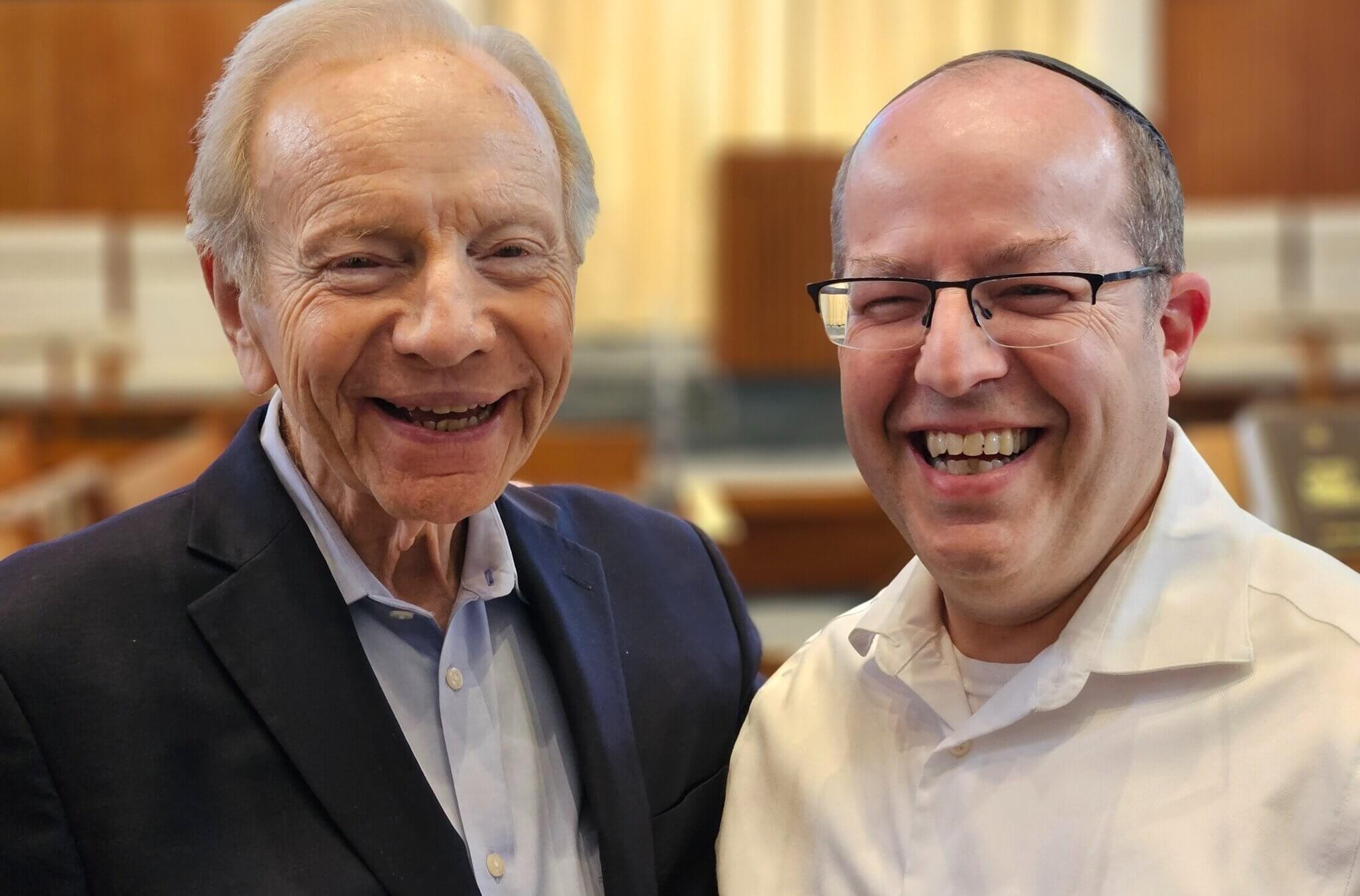Joe Lieberman’s rabbi on the senator who was ‘one of us’
Rabbi Daniel Cohen leads the Stamford synagogue the Lieberman family has called home for generations

Sen. Joe Lieberman with Rabbi Daniel Cohen in August 2023. Courtesy of Daniel Cohen
When Rabbi Daniel Cohen was writing his book about courage, he couldn’t think of a better subject for a chapter than his congregant, Sen. Joseph Lieberman.
Lieberman, who died Wednesday at 82, eventually wrote the foreword for the book, What Will They Say About You When You’re Gone? And Cohen, the spiritual leader of Congregation Agudath Sholom in Stamford, Connecticut, will be answering the question posed by his book’s title when he officiates Friday at the funeral for the first Jewish politician to make a major-party presidential ticket.
In his eulogy, Cohen will of course highlight Lieberman’s commitment to Orthodox observance as he rose through the ranks of American power to become Al Gore’s running mate in 2000. But in an interview Wednesday, Cohen said that at the synagogue, the late senator would be remembered as a “mensch par excellence” who — in spite of his lofty position — hung around to schmooze after services.
“He was a senator, but at the same time, he sat in seats like everybody else, he enjoyed the kiddush like everybody else,” Cohen recalled, noting Lieberman’s fondness of cholent and whiskey. “When he walked home from shul, he got soaked on rainy days. He was one of us.”
Lieberman’s dedication to Sabbath-observant Judaism began at Agudath Sholom, where both the mikveh and beit midrash are named for members of his family. When he was nominated for Vice President, his keeping kosher and not working or driving on Shabbat briefly became campaign fodder. Lieberman continued to attend the shul on Shabbat as long as he lived in Stamford. (He moved to Riverdale following his retirement from the Senate in 2013.)
Cohen did not join Agudath Sholom until 2005, after the senator’s unsuccessful run for the 2004 Democratic presidential nomination. Lieberman suffered a stunning loss in the 2006 Democratic primary for his Senate seat, but nonetheless won reelection as an independent, and Cohen said his political stature was undiminished in the eyes of the congregation.
“People always wanted to get his ear — like, how often do you have a senator who’s like, hanging out eating cholent with you? People visiting Stamford would be like, ‘He’s davening mincha like me?’” Cohen recalled, referring to the afternoon service. “But he gave everyone the time of day. He listened well.”
Still, whenever Rabbi Cohen delivered sermons that touched on political issues, he would be a bit nervous about how Lieberman might react — and whether his messages might influence public policy.
The senator’s responses, Cohen said, were usually the same: “He said he liked them.”
The rabbi said he saw Lieberman as “the modern embodiment of the biblical Joseph — somebody who can really serve as a role model for the vision of being a Jew which is not isolating oneself from the world, but engaging in elevating the world.”
He thought the senator’s commitment to religious observance was the product of a series of minor decisions guided by a commitment to God: “A life is built by small decisions, not major ones,” Cohen said. “And Senator Lieberman understood that character is built over time.”














